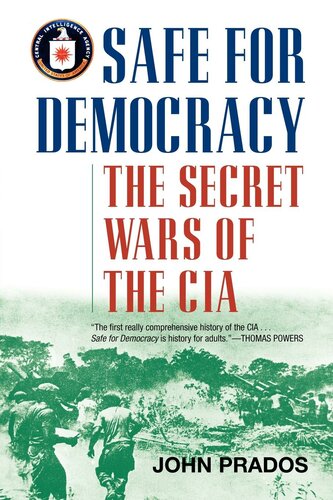

Most ebook files are in PDF format, so you can easily read them using various software such as Foxit Reader or directly on the Google Chrome browser.
Some ebook files are released by publishers in other formats such as .awz, .mobi, .epub, .fb2, etc. You may need to install specific software to read these formats on mobile/PC, such as Calibre.
Please read the tutorial at this link: https://ebookbell.com/faq
We offer FREE conversion to the popular formats you request; however, this may take some time. Therefore, right after payment, please email us, and we will try to provide the service as quickly as possible.
For some exceptional file formats or broken links (if any), please refrain from opening any disputes. Instead, email us first, and we will try to assist within a maximum of 6 hours.
EbookBell Team

5.0
68 reviewsIn the sixty years since the formation of the Central Intelligence Agency, presidents have continually harnessed the agency in service of their foreign policy goals. Three decades ago the “problem” of the CIA appeared to be the agency’s status as a “rogue elephant”—unsupervised, tearing about the globe, acting at whim. By now it is evident that the agency and its cohorts were in fact responding to presidential orders. This seems to make it much more urgent to attempt to tell the story of exactly what the CIA has accomplished. What has the agency contributed toward the success of larger U.S. policy goals, and the global quest for democracy?
Perhaps the problem is more one of the “rogue” president than it is about an out-of-control Central Intelligence Agency. The control and oversight of United States intelligence needs to be examined in specific contexts where the overseers concern themselves with covert operations. In the past the question of oversight has been viewed as one of congressional supervision of the intelligence community, but we can now see this is an inadequate approach.